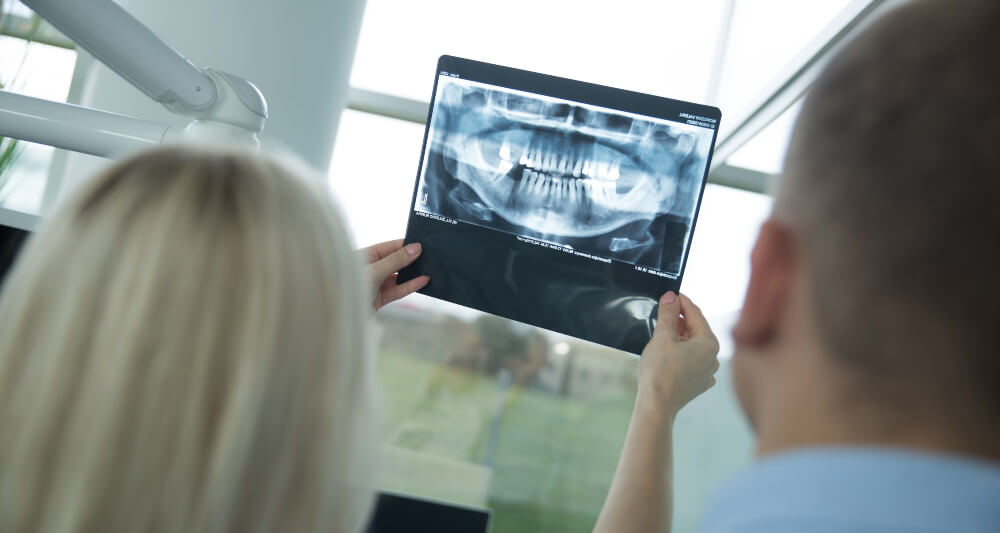Everyone has 32 permanent teeth. However, this is only a theoretical fact because, according to a study conducted a few years ago in Lithuania, almost every second respondent indicated that he (she) had lost 1-5 teeth. People are often convinced that teeth are lost due to age, genetics or health, but this is not always true. So what are the real reasons for individual teeth loss, how does it change our lives and what should we do to get lost teeth?
How are teeth lost?
The main causes of single-tooth-loss are tooth decay and periodontal disease, but there are more. This is confirmed by Jolanta Buinovska, dental surgeon of the Vilnius Odontology Center. “Of course, one or more teeth may be lost due to some diseases that are critical to the condition of the decay, abrasions, gums or periodontal diseases, but the loss of teeth is sometimes result of the accidents, such as sports injuries, as well as incorrect dentistry or prosthetics”, says the specialist.
Jolanta Buinovska also mentions another unexpected cause of dental loss: “Ironically, teeth that have been lost can be the cause of tooth loss. This is because if one or more teeth are missing, the healthy teeth left in the mouth begin to move into empty spaces until they eventually fall out”.
Not only health, but also emotional state deteriorates
Teeth is a harmonious system. Lost one or more teeth should be restored as soon as possible, but patients usually do not hurry to do so, especially if it is not a visual defect. For example, often missing molar teeth do not cause any concern, as it is not noticeable when talking or smiling. “Particularly the molar teeth bear the main burden of chewing, the height of the dental occlusion, the condition of the lower jaw joint and the position of the adjacent teeth depend on them, without mentioning the physical and psychological discomfort experienced by a person with a desperately damaged or lost tooth,” says Jolanta Buinovska.
Regardless of where your oral cavity has lost your tooth, it is the beginning of irreversible changes. Primarily, this causes a deterioration in health – it is more difficult to chew certain foods, so that the diet becomes inadequate and disturbs the functioning of the digestive system. In addition, healthy teeth left in the mouth lose their support and slide down, and eventually the jaw bone begins to melt in the place of missing tooth. A Dentist Oral Surgeon also emphasizes that dental loss affects not only health but also emotions. “Such people feel depressed, avoid communicating, hiding a smile and must choose food not according to their wishes but according to their options. After such changes, most people do not really feel happy and are experiencing constant discomfort,” she states.
Rescue is an instantaneous implantation
It is not a way to reconcile with the lack of teeth and the inconvenience caused by this defect. One of the most effective and reliable solutions is the restoration by dental implants. If one or more teeth are lost, the method of instantaneous implantation treatment can be applied. This is a way to screw the implant into the location of the newly removed defective tooth. Immediately after removal of the tooth and threading the implant, a temporary tooth is attached. This is especially important for aesthetics, because the patient is not without a tooth for a day, so his (her) work and social life are not disrupted. “The dental implant protects the adjacent teeth from displacement and the jaw bone – from melting. The crown on the implant looks and functions just like a natural tooth. The biggest advantage of instantaneous implantation is that the treatment is done as quickly as possible – only few visits to the dentist are sufficient to restore the defective or missing tooth,” says Jolanta Buinovska.
Dental restoration with implants helps not only to ensure proper health, but also to restore quality of life for all single-tooth-loss patients. The Dentist Oral Surgeon from the Vilnius Odontology Center agrees with this. “Applying the method of instantaneous implantation treatment, a person can finally smile and chew food at ease, neither work activity nor social life interrupts, and permanently say “goodbye” to the inconvenience of having no teeth,” she smiles.









